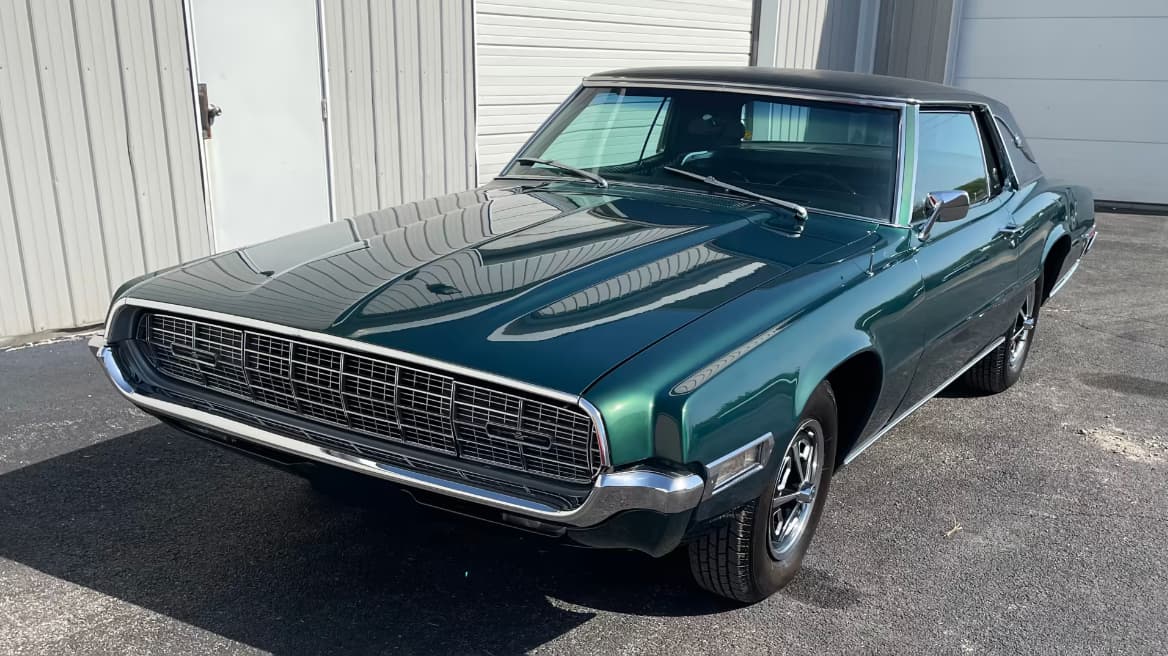The world of classic cars is a fascinating blend of history, engineering, and artistry. These vehicles, crafted in a bygone era, continue to captivate enthusiasts and collectors alike. This comprehensive guide delves into the allure of classic cars, exploring their enduring appeal, popular models, and key considerations for those looking to embark on the rewarding journey of classic car ownership.
What Defines a Classic Car?
The term “classic car” often evokes images of sleek vintage automobiles, but its definition can vary depending on who you ask. Generally, a classic car is an older vehicle with historical significance, distinguished by its unique design, performance capabilities, or cultural impact. While specific criteria may differ between organizations and enthusiasts, most agree that age, originality, and limited production numbers play a crucial role in determining a car’s classic status.
The Enduring Appeal of Classic Cars
The allure of classic cars extends beyond mere nostalgia. These vehicles represent a tangible link to the past, embodying the craftsmanship, design philosophies, and technological advancements of their time.
Here’s why classic cars continue to fascinate:
- Unique Aesthetics: Classic cars boast distinctive designs often absent in modern vehicles. From the elegant curves of a 1950s Cadillac to the aggressive lines of a 1960s muscle car, each model possesses a unique visual appeal that turns heads even today.
- Driving Experience: Classic cars offer a raw and engaging driving experience. Without modern driver aids, these vehicles demand a higher level of driver involvement, providing a connectedness to the road often lost in contemporary automobiles.
- Investment Potential: Many classic cars appreciate in value over time, making them attractive investments for collectors. However, it’s important to note that classic car values can fluctuate depending on various factors, including market trends and the vehicle’s condition.
- Connection to History: Owning a classic car is like owning a piece of history. These vehicles offer a glimpse into the past, reflecting the cultural and technological trends of their era.
Exploring Popular Classic Car Categories
The world of classic cars encompasses a diverse range of vehicles, each with its own dedicated following. Here’s a look at some popular categories:
- Pre-War Classics: Manufactured before World War II, these cars represent the early days of the automobile. They are characterized by their elegant designs, handcrafted details, and often limited production numbers. Examples include the Ford Model A, Duesenberg Model J, and Bugatti Type 57 Atlantic.
- Post-War Classics: Spanning from the late 1940s to the early 1970s, this era witnessed a surge in car ownership and a shift towards more modern designs. Popular post-war classics include the Chevrolet Bel Air, Ford Mustang, and Volkswagen Beetle.
- Muscle Cars: Emerging in the 1960s and early 1970s, muscle cars were all about power and performance. These high-performance vehicles, often featuring large V8 engines and aggressive styling, include icons like the Chevrolet Camaro, Ford Mustang Boss 429, and Pontiac GTO.
- Sports Cars: Designed for speed and agility, sports cars emphasize handling and performance. This category includes both classic and modern examples, such as the Porsche 911, Jaguar E-Type, and Chevrolet Corvette.
Essential Tips for Classic Car Ownership
Owning a classic car is a rewarding experience, but it also requires careful consideration and dedication. Here are some essential tips for aspiring classic car owners:
- Research and Choose Wisely: Thorough research is paramount. Determine your budget, desired driving experience, and maintenance capabilities before settling on a specific model.
- Inspection is Key: Before purchasing a classic car, always have it professionally inspected to assess its condition, identify potential issues, and ensure its authenticity.
- Maintenance and Restoration: Classic cars require specialized care and attention. Establish a relationship with a reputable mechanic experienced in working with classic vehicles to address maintenance and restoration needs.
- Storage and Protection: Proper storage is crucial for preserving a classic car’s condition. Invest in a suitable garage or storage facility to protect the vehicle from the elements and potential damage.
- Join a Community: Connecting with fellow enthusiasts through classic car clubs or online forums can provide valuable insights, support, and camaraderie.
Conclusion
Classic cars hold a timeless allure, captivating generations with their unique blend of history, craftsmanship, and driving experience. Whether you’re drawn to the elegance of pre-war automobiles, the raw power of muscle cars, or the sleek lines of classic sports cars, the world of classic car ownership offers a rewarding journey for those with a passion for automotive history and a desire to experience the thrill of driving a true icon.
